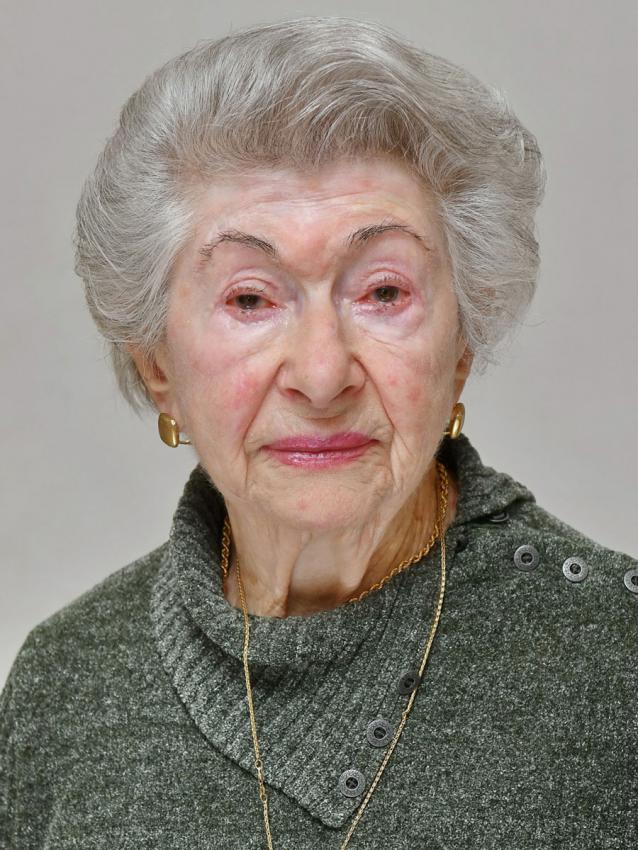Olga Kay lit one of six torches at the State Opening Ceremony of Holocaust Remembrance Day at Yad Vashem in 2022.
Olga Kay (née Czik) was born in 1926 in the town of Ujfeherto, Hungary, the ninth of ten siblings. The family, which was observant, was supported by her father Eliyahu's shoe store. Her brothers studied in Heder, and on Sundays they learned Hebrew.
On 15 April 1944, the family was deported to the village of Simapuszta.
"We were not rich. I took a small bundle: clothes and some jewelry. At first, we were taken to the town hall, and four weeks later, when enough people were concentrated there, we were taken on foot to the Nyíregyháza ghetto. We slept on straw thrown on the floor."
On 22 May 1944, Olga and her family were deported in cattle cars to Auschwitz. The journey lasted three days.
"When we were at the border my father said, 'My beloved, we are going to die.' He took the jewelry we had and threw it in a bucket full of feces so that the Germans would not find it."
Upon arrival in Auschwitz, most of the family was taken straight to the gas chambers and murdered there. Among the victims were Olga's parents Eliyahu and Lea; her sister Margaret and Margaret's daughter Suzie; and her older sister Bella's son Asher. Olga and her sister Eva underwent a selection: "We were taken to a room with other women, where we were stripped and shaved from head to toe," and then were sent to work in Auschwitz. In July 1944, they were sent to the Kaufering concentration camp in Germany. "One day, there was a bombing attack, including on the farm where we worked. The Russian prisoners were taken to bunkers and the Jewish girls were taken to another building. The bunker was directly hit, but the building was not, and the girls came out unscathed."
In November 1944, Olga and Eva were transferred to the Bergen-Belsen concentration camp. A month later, their sister Bella was deported there, and the three met. "We were riddled with lice. We lay on the crowded floor. Everyone got sick and had diarrhea. There was no time to go to the outside toilets. People died one after another. We did not think, we did not talk to each other about what was going to happen. Death became commonplace. Today, you, and tomorrow, whoever was next to me.
"One day, on 15 April 1945 – I remember his face – a soldier came through the door and said we were liberated. We did not jump for joy. We were like automatons. We are liberated. What now? I went to get food, but I was weak. I weighed 25 kilograms (55 pounds). I fell and crawled on my knees and came back without food."
At liberation, Eva was extremely sick, and died in Bergen-Belsen. Olga's sisters Adele and Bori survived in the Ravensbrück camp. After the war, Olga and Bella were taken to Sweden to recuperate. From there they immigrated to New York, where Olga met her husband and started a family.
"When my daughter Evelyn was born, my first thought was: This is my victory over Hitler. We have returned from the ashes."
In 1985, Olga and her family followed their daughter to live in Israel.
Olga and George z"l have two daughters, five grandchildren and 16 great-grandchildren.


